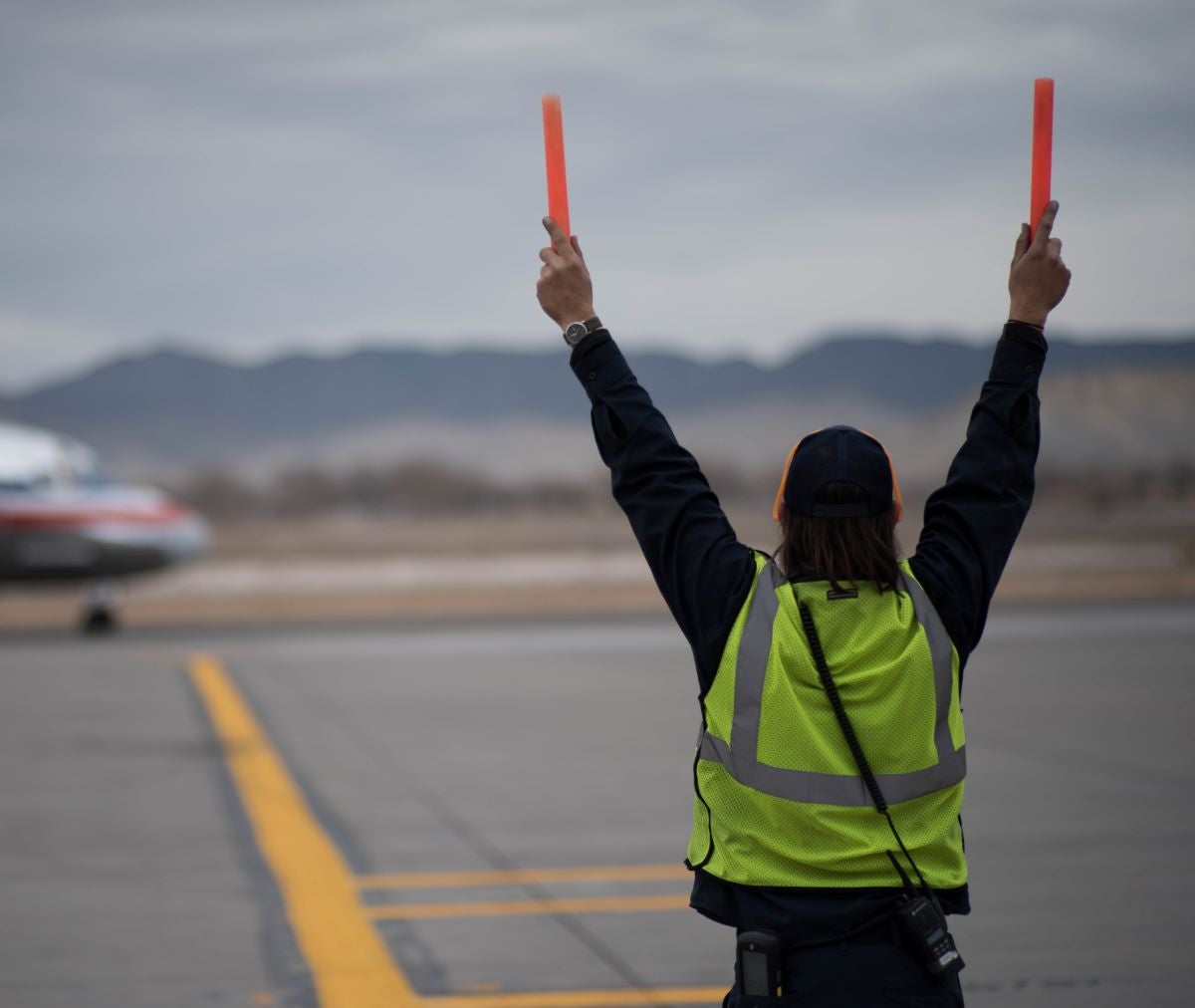The FAA is taking a closer look at preventing injuries to ground personnel at airports, releasing a Safety Alert for Operators aimed at making ground operations safer.
According to the FAA, the safety alert was prompted by recent injuries and fatalities that occurred during aircraft towing or ground handling operations.
In one event, a wing walker was run over by an aircraft’s main landing gear wheels when attempting to remove the main landing gear safety pins while the tow driver was moving the aircraft.
In another event, a ramp agent was fatally injured after being sucked into an engine that was still in operation. According to the National Transportation Safety Board, the aircraft was parked at the arrival gate with the No. 1 engine running for the required two-minute engine cool down. After stopping the aircraft and setting the parking brake, the captain gave the hand signal to connect the airplane to ground power. However, one ramp agent was already walking toward the forward cargo bay, resulting in the fatal accident.
The FAA emphasized that these recent events are not indicative of a systemic issue but were severe enough that a safety alert was warranted.
According to an FAA spokesperson, U.S. airlines are required to have a safety management system (SMS), a set of policies and procedures companies use to identify, monitor and address potential operational hazards early on before they become serious problems.
“Airlines’ safety management systems should identify and address a wide range of potential hazards, including those affecting their airfield workers. When events occur, the FAA works with an airline to ensure its SMS takes into account and mitigates the factors that led to the event.”
In addition, the FAA “Now requires large commercial airports to have SMS, and the FAA investigates accidents and incidents that occur when aircraft are taxiing to and from their gates. In January, the FAA proposed a rule that would require charter, commuter, and air tour operators and aircraft manufacturers to implement SMS.”
The FAA stressed SMS does not take the place of regular FAA oversight, inspection, and audits to ensure compliance with regulations.
The FAA has also issued recommendations to improve safety during aircraft ground handling, servicing, and marshaling.
The procedures require:
- The use of chocks whenever an aircraft towing operation has been stopped, either temporarily or when the aircraft being towed is parked at the intended parking location.
- That activities commence only after chocks are installed.
- That all personnel remain clear of the aircraft in tow until the aircraft has come to a complete stop.
- That all personnel remain clear of operating engines until they are shut down.
